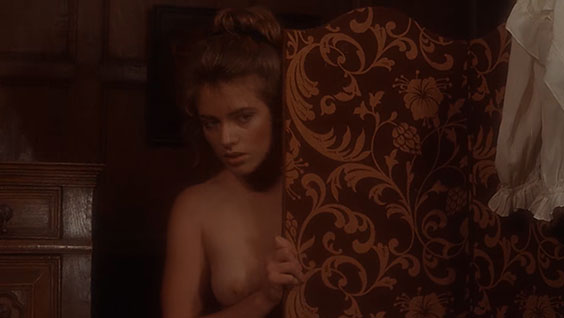Hardly any other erotic novel from the 18th century has achieved such a lasting reputation as Memoirs of a Woman of Pleasure, better known as Fanny Hill. British author John Cleland wrote the text around 1748/49 – at a time when English literature was morally conservative, but spicy material was also circulating in private reading circles.
Shortly after its publication, the novel was banned, yet it managed to circulate in countless pirated editions, translations, and abridged versions. Even today, more than 270 years later, the title Fanny Hill is familiar to most people – even if only a few have actually read the text.
Contents: The life story of a courtesan
The novel is conceived as a fictional autobiography. The young Fanny Hill looks back on how she came to London at the age of 15, ended up in a brothel, and was introduced to the world of prostitution.
Cleeland uses a series of episodic experiences in which Fanny describes her first sexual encounters – sometimes naively, sometimes consciously enjoying herself, occasionally with a comedic undertone. The narrative is less a linear drama than a chain of love affairs ranging from tender romance to explicit physical descriptions.
The text does not end in moral condemnation, but in a happy marriage to Charles, her great love – a highly unusual move for erotic literature at the time.
Origin and persecution
John Cleland probably wrote the novel while in debtors’ prison. The authorities reacted sensitively to its first publication in 1748/49:
- In 1749, distribution was stopped,
- Cleland and his publisher were brought to court,
- and the text was officially classified as “obscene.”
Despite (or perhaps because of) this censorship, Fanny Hill quickly spread throughout Europe and America. It was banned in England for over 200 years and was not legally published in its unabridged form until 1963 in the US and 1970 in the UK.
Dramatic structure
- Introduction – Fanny writes letters to an unnamed friend and announces her intention to tell her life story without holding anything back.
- Innocence and seduction – She describes her childhood and her first encounters with sexuality, initially without understanding what is happening.
- Learning and observing – In a brothel, she observes other couples and begins to discover her own sexuality.
- Fulfillment and disappointment – Encounters with various lovers, sometimes pleasurable, sometimes sobering.
- Rediscovery of true love – After many adventures, she finds Charles again, and the novel ends with their marriage.
This episodic structure allows Cleland to weave in a variety of erotic scenes without causing the main character to morally descend.
What makes the novel special?
- Explicit but artistic language: Cleland almost completely avoids crude expressions. Instead, he uses circumlocutions, metaphors, and vivid comparisons that make the text sensual rather than crude.
- Self-determined heroine: Fanny is not a tragic figure, but a woman who explores her sexuality and does not end up as a victim.
- Literary quality: Despite accusations of pornographic censorship, the novel has a narrative sophistication that distinguishes it from mere smut.
- Happy ending: In an era when “fallen” women almost always die or end up destitute in literature, Fanny’s conclusion in marriage and prosperity is remarkable.
The accusation of pornography
Since its first publication, the work has been dogged by a reputation for offensiveness. From today’s perspective, it can be said that yes, Fanny Hill is clearly erotic, sometimes very explicit – but not pornographic in the modern sense.
Pornography is usually aimed solely at sexual arousal and dispenses with literary form. Cleland, on the other hand, creates a linguistic work of art that combines eroticism with wit, milieu description, and characterization.
It is precisely this mixture of the explicit and the veiled that makes it so appealing – and explains why the novel has not only survived, but is constantly being republished, adapted, and discussed.
Aftermath
- Numerous film adaptations (including 1968, 1983, 2007)
- Adaptations for theater and graphic novels
- Mentions in literary and cultural histories as a milestone of erotic prose
The name “Fanny Hill” has become a code word for erotic literature – similar to “Lady Chatterley” or “Justine.” Anyone who hears the title immediately knows that it is scandalous material, even without knowing the novel.
Fanny Hill is more than just a historical erotic novel – it is a literary document that broke the boundaries of its time and continues to raise questions about morality, lust, and female self-determination to this day. Its mixture of narrative wit, sensual language, and breaking of social taboos makes it a work that is still read – and discussed – in the 21st century.

